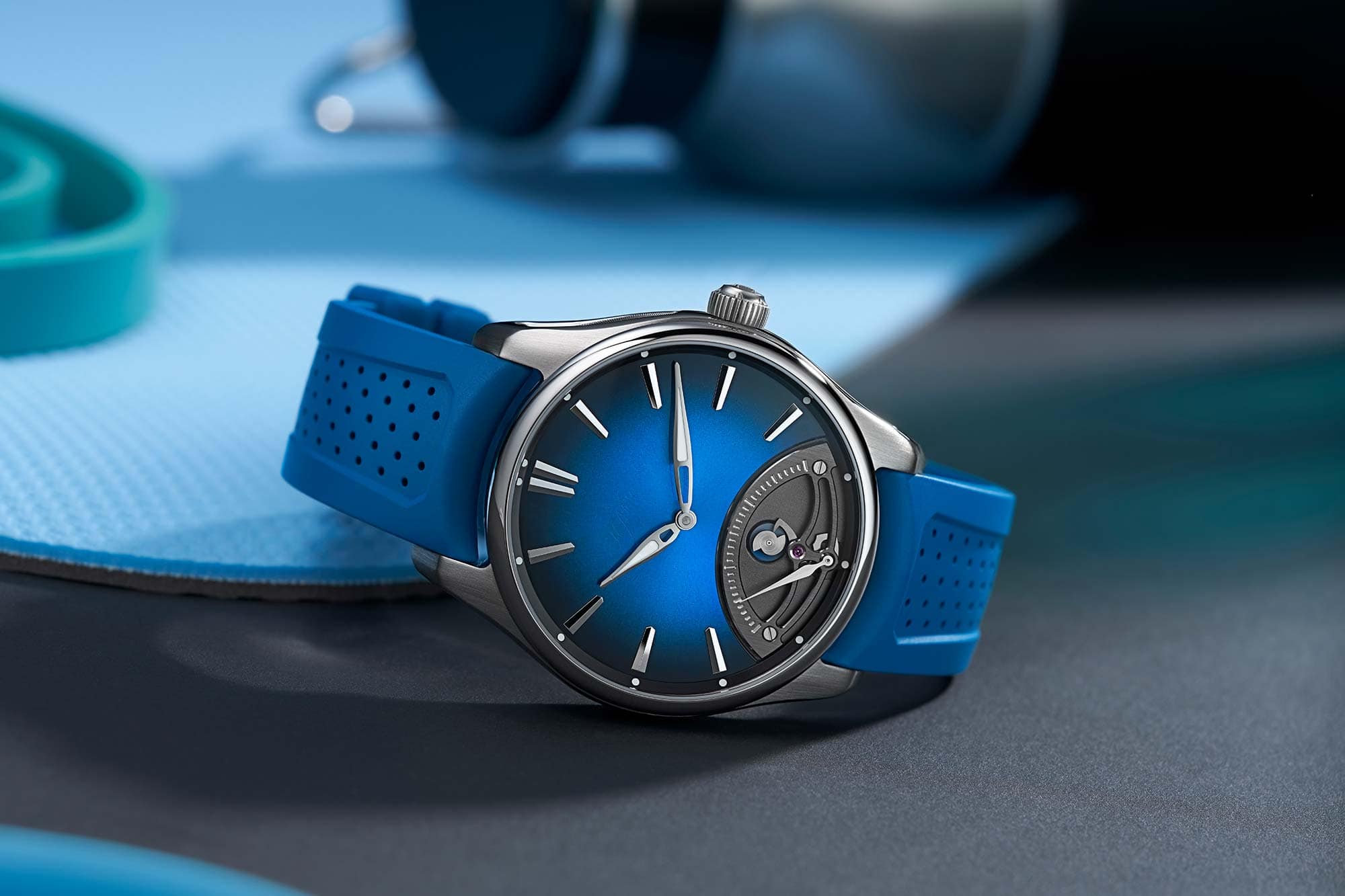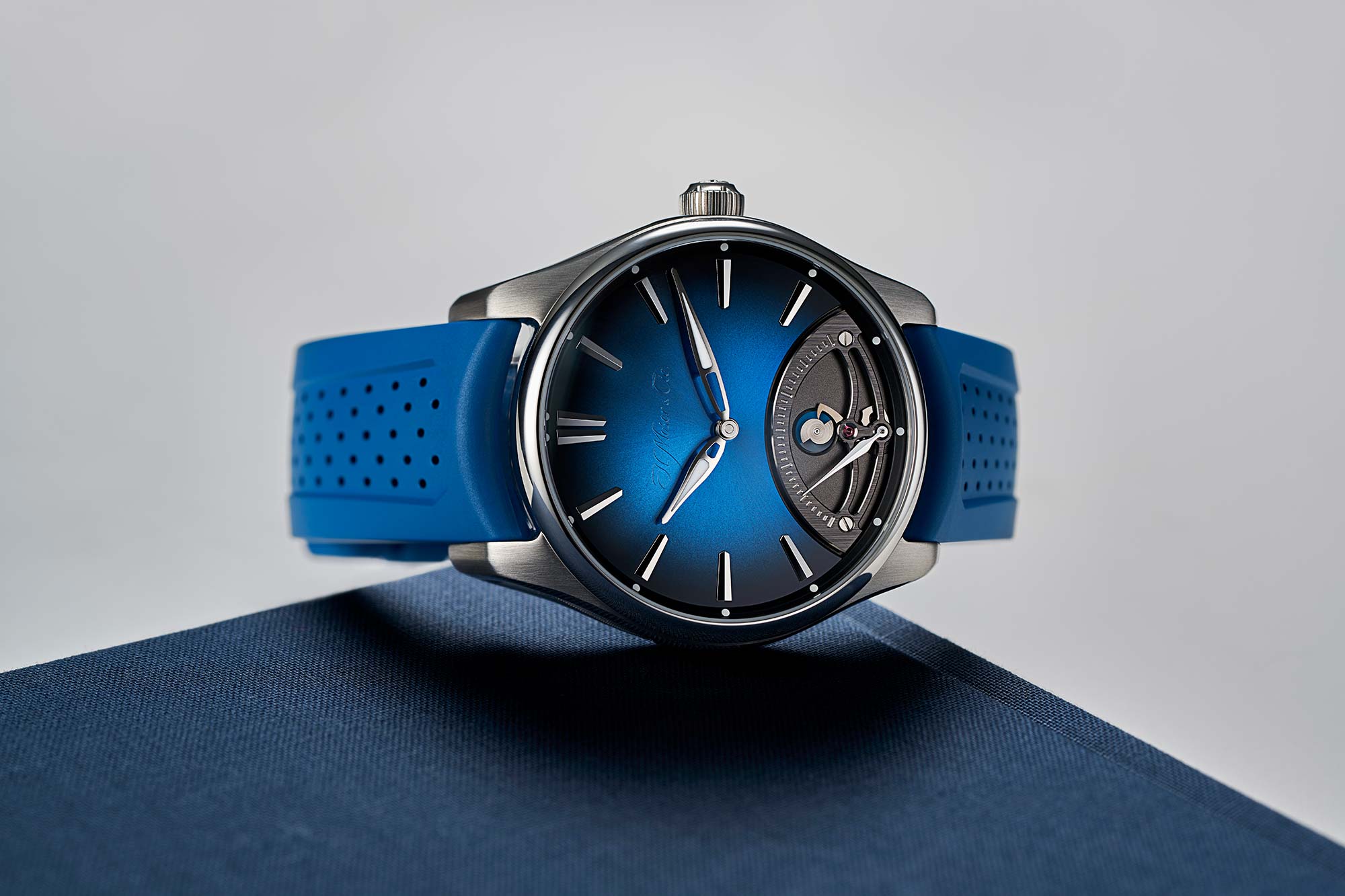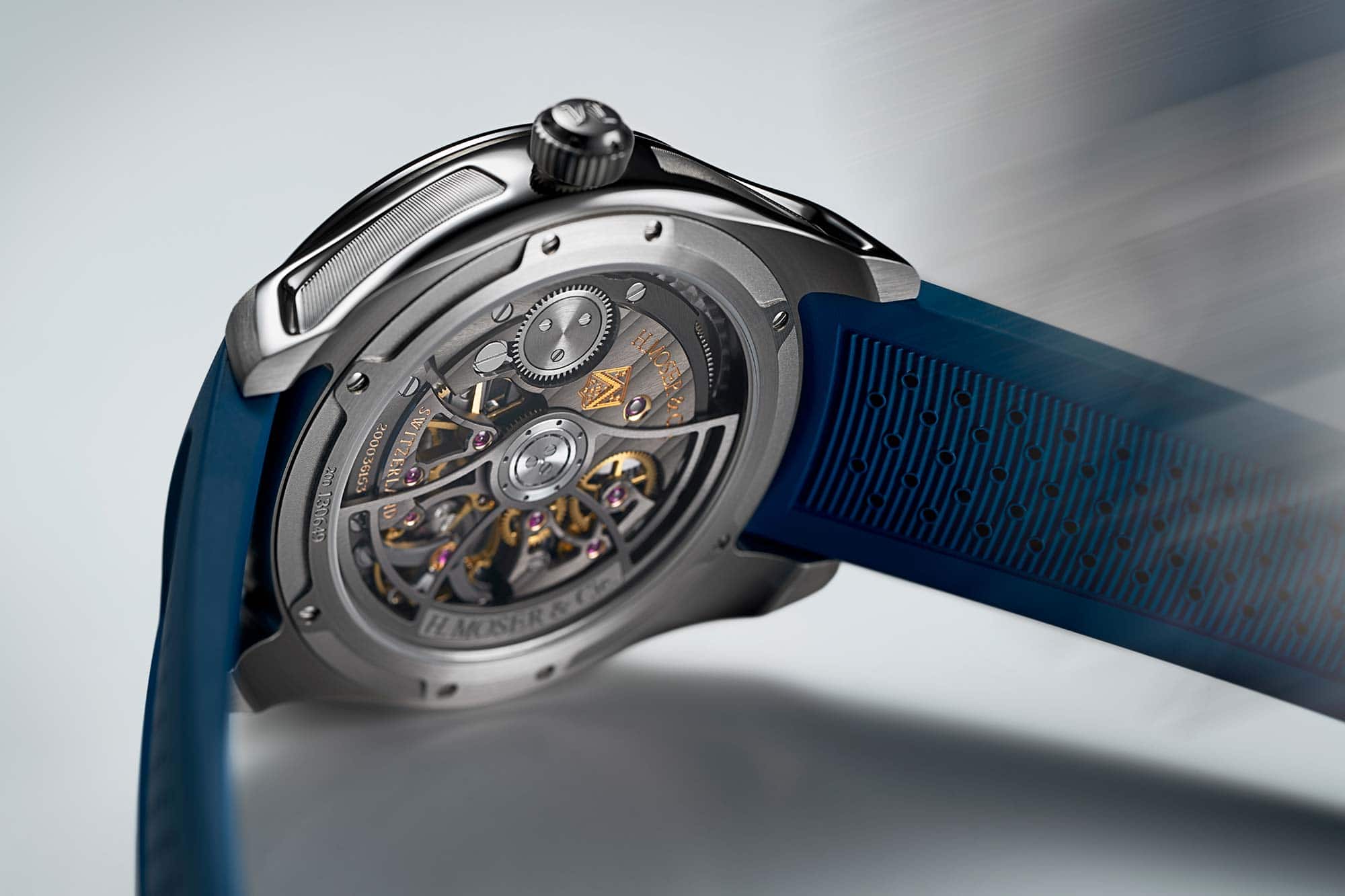As watch enthusiasts, we all have our weaknesses. Some feature or design quirk that makes very little sense in practical terms, but nonetheless appeals to us in ways we can barely even describe. Something that falls into this category for me is the “useless” complication. A complication that doesn’t really have much of a functional purpose at all, but is just sort of there was a watchmaking flex. There are all kinds of strange time telling displays that fall into this category, plus your deeply anachronistic complications like integrated barometers, scales that tell you the age of the moon, or perhaps even a secular perpetual calendar that no one alive today will be able to see in action. Then there are retrograde displays, which while not exactly “useless” certainly tend to be, well, maybe unnecessary is a better word. But the vaguely violent snapping back of a hand when it reaches the end of the display has a real pull.
If that sort of mechanical violence is up your alley, Moser’s latest is a watch you should investigate. The Pioneer Retrograde Seconds in Midnight Blue takes your normal, everyday Pioneer and juices it significantly with a retrograde seconds display at the bottom of the dial that snaps back every thirty seconds. That makes for a dial with a lot of action, with a second hand moving twice as fast as it normally would, interrupted every thirty seconds with an action that, to witness it, you’d surely think would cause some manner of mechanical injury.
There’s no practical reason for this. None. Unless, of course, you’re H. Moser and you simply want to show off what you’re capable of. The movement, the HMC 250 caliber, is based on Moser’s workhorse automatic HMC 201. It’s fitted with a module made in partnership with chronograph specialists Agenhor SA. Moser, you might remember, shares a common holding company with Agenhor (MELB), so debates as to whether this movement qualifies as “in-house” or “manufacture” can start here, I suppose. Moser, to their credit, is completely upfront about where the movement comes from and who makes what. Another fun detail about the retrograde seconds display is that it incorporates a small, two-tone disc positioned under the snail cam (the component that allows for that snapping every 30 seconds) that helps the wearer determine if the display is in a minute’s first or second 30 second period. Chronometric precision is important, after all.
The dial is in Moser’s fantastic “Midnight Blue” colorway, one that has become a staple for the brand. The ornate script of Moser’s wordmark is located near the 12:00 position in transparent lacquer, part of the brand’s ongoing move toward reducing branding to an absolute minimum. The case is stainless steel, in what has now become the familiar 42.8mm Pioneer form factor, with a big domed crystal and intricate accent finishing on the case flanks and along the lugs.
The big Pioneer case is a love it or hate it proposition for many. I reviewed one a few years ago, and found it to let down the incredible dial somewhat. It’s not my favorite Moser case by a long shot, and the newer 40mm version makes this big one seem even bigger somehow. That said, it accomplishes what it sets out to do, which is to cut an imposing stance and make a statement. This watch, particularly with that retrograde seconds display, is a big flashy action movie. It’s loud, a little violent, and meant to be seen.
The retail price for the Pioneer Retrograde Seconds in Midnight Blue is $21,900. It’s available now, and is not a limited edition. H. Moser









 Featured Videos
Featured Videos













